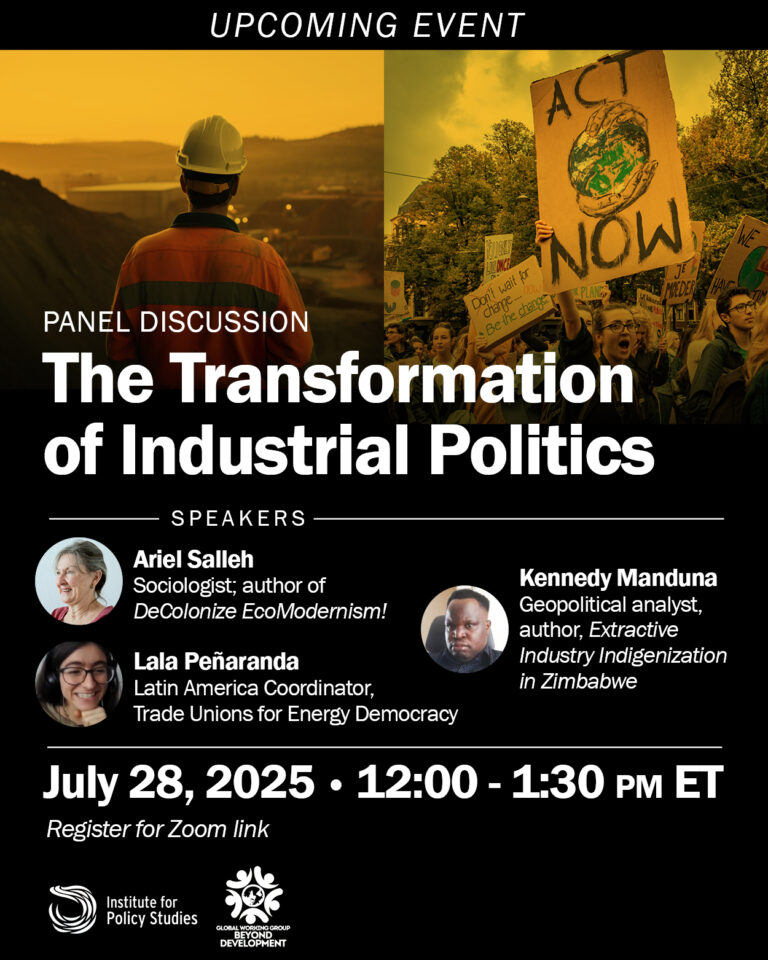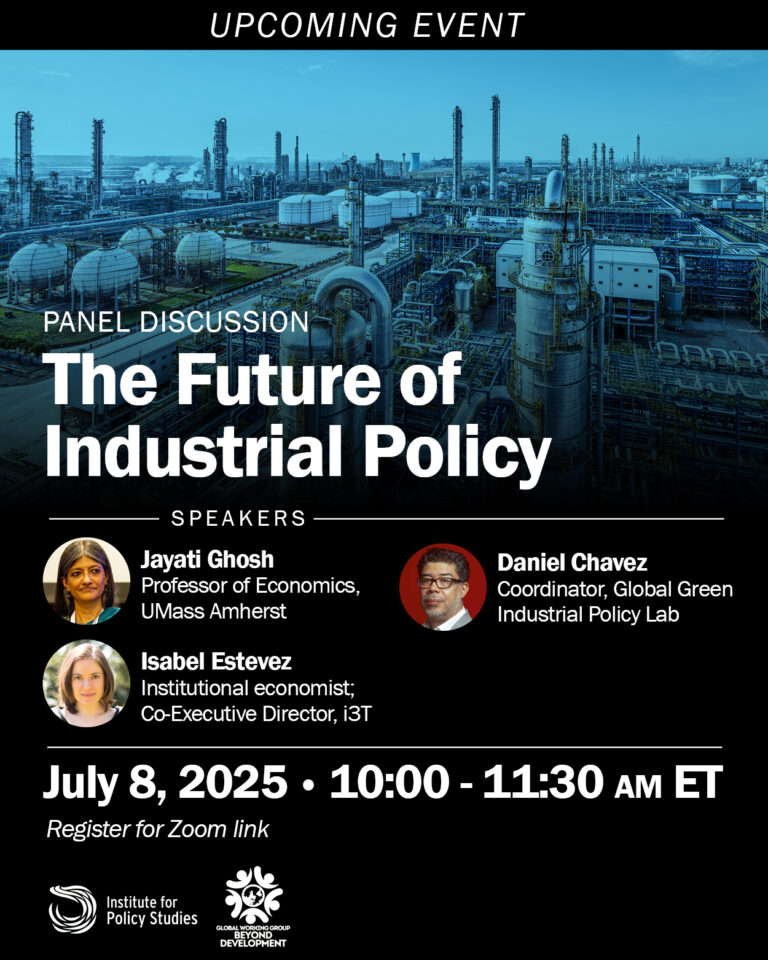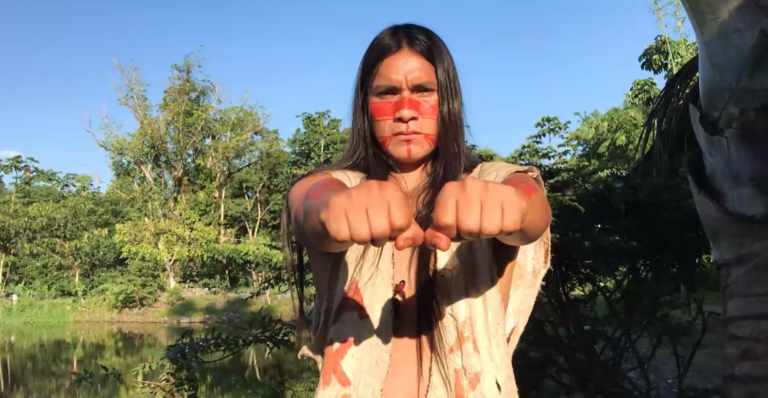As the world reels from historically unprecedented socio-economic and political impacts of the coronavirus (COVID-19), many governments are rolling out emergency measures and guidelines for physical distancing, lockdowns, and quarantines, closing of borders, and restrictions of people’s movements in an effort to flatten the curve.
Of great concern among social and labor movements, civil society, and people at large is how this global health emergency reshapes democratic institutions and democratization processes, for better or worse. This also affects the possibilities of social and systemic transformation. The current moment seems to contain very contradictory dynamics: Intense social protests that marked the second half of 2019 in many parts of the world have come to an abrupt halt and people are being stripped of their most common means of collective expression; at the same time, deep structural reforms toward more equality and, hopefully, a more reciprocal relation with nature are being put on the agenda by rather unlikely actors. The potential of territorial grassroots self-government is being deployed in places where public infrastructure fails to adequately respond to the multidimensional crisis COVID-19 has provoked.
New threats to democracy and civil rights
To collectively discuss the implications of the crisis on our daily and future lives as well as on the fate of the planet and humanity, the Global Working Group Beyond Development organized a virtual meeting. Invited activists and scholars tackled how the COVID-19 crisis is affecting democracy in different parts of the globe. Democracy here is taken as a contested and evolving praxis that spans public liberal institutions but also instituent power from below. It has local/communitarian/territorial dimensions; covers cultural, political, and economic spheres, and spans political units vis-à-vis ecological boundaries. The meeting gathered experiences and analyses from Latin America, Asia, Africa, North America, and Europe. Besides sharing our radical uncertainties, our discussion revolved around the question: how the ‘new normal’, a term which has been used multiple times to signify dramatic changes as normal fixtures of life (e.g. climate change) expose embedded structural inequalities and fissures within the dominant global capitalist model and cause devastating consequences, particularly for the poorest and most vulnerable communities. But while impacts differ across countries, neighborhoods and communities along gender, ethnicity, class, race, place, geopolitics and intergenerational lines, we are witnessing common occurrences that connect us.
Many governments exploit the crisis to roll out measures to repress citizens and control public spaces, ramp up state propaganda, deploy security forces and expand digital surveillance through tracker apps and facial recognition technologies. The United Nations, for instance, has called out a dozen countries for a ‘toxic lockdown culture’ against the pandemic marked by heavy militarization and repressive measures such as arrests of 120,000 people and 26,800 people for violating curfew and stay-at-home guidelines in the Philippines and Sri Lanka, respectively. In several parts of the world like Chile, Colombia and Algeria, governments are using COVID-19 to curtail on-going social movements’ activities. Parliaments in countries like Tunisia grant their chief executives special emergency powers, which many fear result in de facto dictatorship. Countries already in turmoil such as Venezuela continue to see increased military control, resulting in stark polarization that makes it impossible for the government and opposition to work together to address the crisis. In India, the Hindu nationalist government of Prime Minister Narendra Modi has been using the lockdown as an opportunity to further marginalize the Muslim minority and aggravate inter-religious animosity. New surveillance tools deployed by Norway, China and Israel, among others, monitor the population’s smartphones and use millions of face-recognizing cameras that not only check body temperature and medical conditions, but also track people’s movements and identify anyone they come into contact with. In some countries, constitutional rights are suspended, human rights are pitted against ‘public health’ and ‘national security’, and a culture of impunity is reinforced in the name of solving the pandemic.
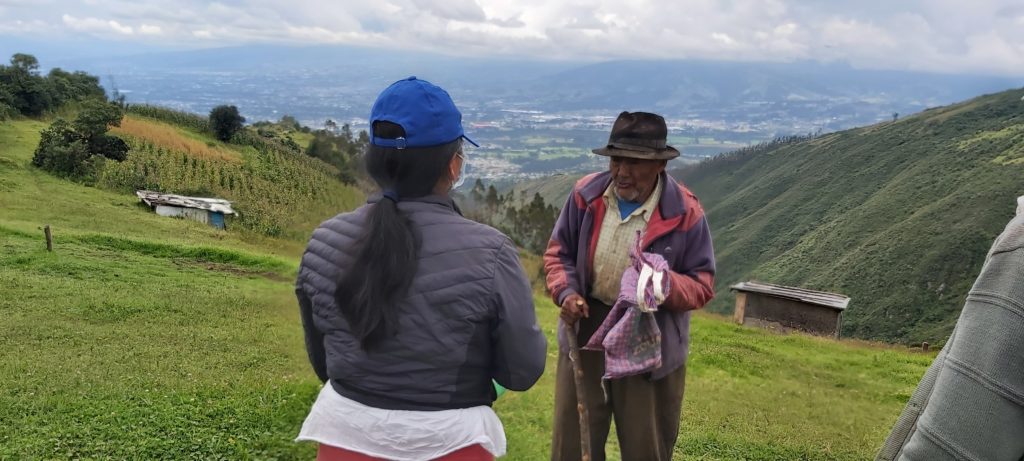
The crisis has also increased the precarity of migrants, peasants, urban poor, workers, and refugees. Millions of workers are estimated to have been affected as various countries enforced lockdowns, and some of the hardest hit are stranded migrants who are forced to walk hundreds of miles to their hometowns, many starved to death and got beaten along the way by police forces for alleged violations of the quarantines. Most laborers cannot switch to ‘work from home’, instead they rely on ‘no work, no pay’ regimes, and do not have social protection. The rural poor, too, are severely affected where governments have prioritized the survival of global value chains over local ones. Many countries have favored big food retailers while shutting down small peasant or neighborhood markets, generating further concentration in the food sector. However, there are a few hopeful spots. Initial successes of South Korea’s and Taiwan’s responses to curtail the spread of the virus provide lessons and stress the centrality of universal healthcare, public health emergency services, and improved working conditions and training of health workers. In Europe, Greece has kept death rates exceptionally low, partially owing to a working public healthcare system.
The return of the nation-state?
This pandemic appears to have brought back the nation-state and the importance of public institutions and services to the forefront. In former discussions, we already tried to tackle the ambiguous character of the state and its role in social transformation. Some of us are advancing that bottom-up democracy, and the building of confederationalist alliances between spaces of self-governance, might have the biggest democratic potential. This entails constructing new spaces of decision-making, which are not centered on the structure of the nation-state. At the same time, others insist that the struggle for democracy must also be fought within existing national and global structures, as urgent issues like the ecological crisis – or COVID-19 – need to be dealt with on these higher levels.
The importance of quality public infrastructure, free of profitability imperatives, has been brought to fore by huge disparities in the capacity of different public health systems to respond to the pandemic. Global inequalities also seriously undermine the potential of nation-states to provide quality public health infrastructure. On average, a vaccine reaches the global South seven years later after reaching the global North. Low capacities of public health systems like that of Guayaquil, Ecuador’s result in hundreds of unattended deaths. Here, foreign debt burdens matter, as they minimize the fiscal space for governments to respond. Public calls for debt cancellation get louder like the recent call of peoples, organizations, movements and networks in North Africa and the Middle East for the cancellation of debts and free trade agreements.
The civilizational crises exacerbated by COVID-19 seems to have opened paths for other deep structural changes around the economy that involve important dimensions of democratization. Global trade unions call for the introduction of a universal basic income coupled with social policies to guarantee decent work conditions, quality labor employment, adequate and comprehensive social protection, and wealth redistribution, a stark difference with habitual trickle-down policies. Unlikely actors like the IMF have called governments to introduce a progressive tax reforms to tackle inequality. Even ideas of nationalizing certain strategic industries have been put into circulation. All this points to the nation-state recovering a more Keynesian role in regulation and redistribution, which had been demonized by neoliberal ideology.
The potential of the state for transformation, however, remains contested as other dynamics suggest opposing trends. With world leaders vocally fearing the inevitability of a global recession and financial markets crash, the state— ‘big government’— is now expected to roll out stimulus packages, pump huge sums of public monies to restart the economy, and rescue corporations deemed important and sectors at risk. In the US, COVID-19 is used to shore up and strengthen Capital through massive injection of money from the Federal Reserve Board. The ‘Coronavirus Capitalism’ as noted by Naomi Klein has led to the rise of the stock market by 12%, while almost 20% of the population has plunged into unemployment. Across the Atlantic, German trade unions, critical scientists, and social movements emphasize that the bailout of aviation, automotive, and other dirty industries should be linked to socio-ecological criteria, particularly the conversion of these industries as part of efforts to decarbonize society. Democratizing society-nature relations is one of the big challenges we face today, as both carbon emissions, and more generally pollution, are highly unequally distributed in the world. In many countries of the global South, the lockdown is used by national and transnational elites to further deepen extractivism. In Ecuador, for example, environmental regulations are weakened to attract new mining projects, and mining and oil companies are given tax breaks, while the burden of austerity remains on the people’s shoulders.
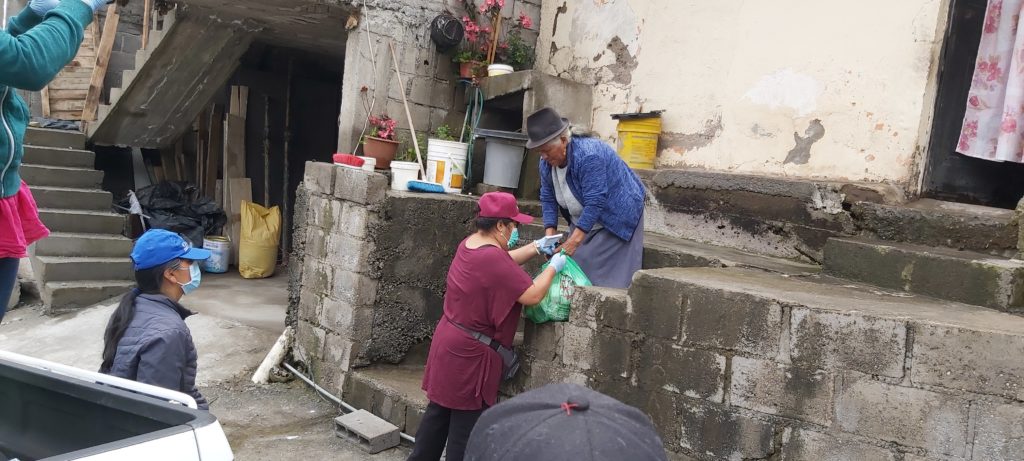
Even in countries with relative successful responses, like Taiwan or South Korea, public discourse takes a ‘technocratic and/or scientific’ approach— ‘let us leave the decision making to the experts, the medical community, and scientists because they know what’s best’. This presents dangers— political leaders can conveniently hide discriminatory, unethical, and unsound policy decisions behind the science and technical evidence. Such approach also undermines a democratization of knowledge beyond western/scientific knowledge. Equally disconcerting is the lack of mechanisms for greater transparency and participation to facilitate public scrutiny, avoid blind spots, and recognize the limits of evidence-based policy. In a crisis or under a state of emergency, it is much harder to deliberate about our common future, gather a critical mass of public opinion or make protest count especially under physical distancing measures.
Transformative action at different scales
While some political actors, especially from the global North, push for a Global Green New Deal, the coronavirus has also forced a relocalization. This opens paths for a different understanding of the economy, one that puts the reproduction of day-to-day life, instead of capital accumulation, at the center. Strategic and systemic transformative processes and people’s solidarity initiatives for genuine democracy, people’s sovereignty over their material conditions, collective self-determination, and self-rule (swaraj in Sanskrit) are proceeding amid the direst conditions. In many places of the Andes, for example, communities democratically exercise self-governance quarantining themselves collectively and strengthening bonds of reciprocity, as a prevention strategy beyond individualization and confinement to the household. They enforce prevention measures by applying community justice. Black-led cooperative movements in the US such as Cooperation Jackson that have created their own means of production – as described in the upcoming Global Working Group’s book “Cities of Dignity”- have been better prepared to cope with the lack of protective personal equipment (PPE) by providing mutual aid for production of 3D printed PPE masks for the community.
Food sovereignty has also become a crucial issue for many rural and semi-urban communities. Revival of local food systems and open localization to strive for local self-reliance are being practiced by many communities. Indigenous peoples in the upland town of Sadanga, Philippines rely on built-in and indigenous social structures, values, and practice of taking care of neighbors and kin in distress (kailyan) during crisis, where richer community members are socially and culturally expected to provide support and share their wealth to needy relatives. In India, thousands of Dalit women farmers, extremely marginalized by the caste-patriarchal system, have organized themselves to realize food sovereignty and community health by employing organic farming methods, saving traditional seeds, local knowledge and solidarity. They have also donated their seeds for COVID-19 relief. Local solidarity initiatives in the face of hunger due to the forced discontinuation of informal economic activities have proliferated throughout the world, increasing people’s relations and rootedness in their neighborhoods and villages.
Global solidarity is also being redefined by new North-South relations based on decolonized perspectives and mutual trust with various social movement-led solidarity fundraising and relief operations. Multiple advocacy initiatives call for public accountability, feminist degrowth to democratize the caring economy and all dimensions of life, and the revitalization of income guarantees, equivalent to minimum wage for all workers, to name a few. At the heart of these demands is the articulation of progressive alternatives that seek to end inequality, ecological devastation, exploitation, and conflicts produced by global capitalism, patriarchy, and statism.
As the crisis continues to unfold, if we collectively fail to make the right choices now or to push for them to be realized, the immediate and long-term consequences could be devastating. Will we succumb to a future which historian Yuval Noah Harari predicts as between totalitarian surveillance or citizen empowerment, or nationalist isolation or global solidarity? Or do we heed the counsel of Indian novelist and activist Arundhati Roy and use the pandemic as a gateway to a better, new world, one that breaks from the past and embraces a world in harmony with nature’s generative power and free from all forms of domination?
This civilizational crisis challenges us to rethink our economy which ultimately will shape new societal institutions in a way that allows us to live together with all other species on this planet. As African sociologist Alpha Amadou Bano Barry points out about Africa, “to be radical is to grasp things at the root, but the root, for humankind, is humankind itself […] (we) must take advantage of this pandemic to simply recover all sovereignty, which begins with thinking about ourselves and (our) own development.”
Our collective and on-going debates point to the necessity of forging a post-pandemic future marked by new pathways and social relationships built on compassion, equity, justice, and radical democracy.
Mary Ann Manahan is a feminist activist researcher from the Philippines who works with social movements to demand equity, social and environmental justice and redistributive reforms.
Miriam Lang teaches at Universidad Andina Simón Bolívar, Ecuador. She uses decolonial and feminist perspectives to study political ecology.

